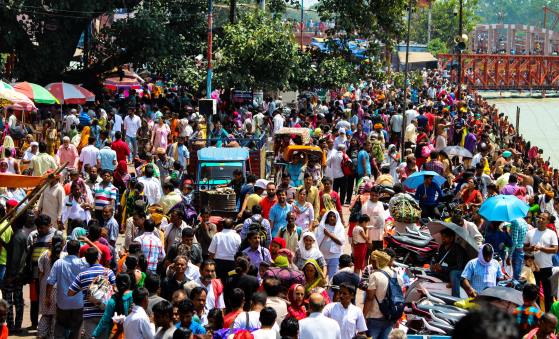Panaji – On the occasion of Peace Day, January 30, which is celebrated by the Church in India, Archbishop Filipe Neri Ferrao of Goa and Daman archdiocese said that the main mission thrust of the body of Christ should be promotion of culture of peace.
“Every year the Church in India celebrates Jan. 30 as “Peace Day” in memory of Mahatma Gandhi – the Father of our Nation and a great apostle of peace and pays tribute to him on the anniversary of his death,” the archbishop said. “This commemoration inspires us to rejoice in our mission in promoting peace, individually and collectively, during our earthly pilgrimage and, ever enlightening our hearts and minds, it urges us to work for peace with increasing zeal.”
Though, “for centuries Indian of all faiths have lived in peace and harmony fostering brotherhood and Hindus, Muslims, Christians and followers of other faiths have been following the path of communal harmony for ages, the bishop voiced his concerns that in recent times, the growth, in number and in power, of some fundamentalist groups and communal forces has smeared the secular character of India and have brought religious intolerance to the front.
“The adverse effects of this phenomenon are felt all over India,” he lamented. “Violence and crime – murders, rapes, dacoities – have multiplied.”
“Peace is goodness. And goodness does not obtain through evil deeds or the use of the wrong means,” Archbishop Ferrao said. “St Paul tells us: ‘Do not be overcome by evil, but overcome evil with good’. Evil results from an irresponsible use of human freedom. To combat evil, one must set aside one’s own good and interest and think of as well as work for the common good, specially the well–being of the needy. One will then be using one’s freedom with responsibility.”
Condemning violence, war and oppression, the archbishop called for a “growing spirit of compassion and concern for the suffering, along with selfless giving, such as was witnessed when the plight of the millions affected by the Tsunami tragedy evoked the response of another ‘tsunami’ – of human empathy, generosity and selfless service – that rose in all its might, as if embracing the whole of humanity.”
“Humanity responded generously across all religions, indeed it continues to respond, as one family, to the call of distress. This surely is a matter of joy and of hope,” he said.
“Jesus Christ is our model in facing this challenge. In His divine freedom, Jesus repaid evil with goodness. He led those seeking to pay evil with evil to the path of forgiveness and understanding,” the archbishop continued. “In His outspoken criticism of social injustice, He never used means that offended peace. He sowed the seeds of the kingdom of peace through His life of boundless love.”
“We too are called to be instruments of peace. The holy Mass is a fountain of peace. In this year dedicated to the Holy Eucharist, may the Blessed Sacrament be our source of inspiration and courage to work for peace with ever growing zeal. Coming together around the one Table, may we work to create and increase genuine communion,” the archbishop urged. “Let us join hands followers of other faiths in due respect and work for peace, as one human family and, through the witness of our own lives, help build a new society where peace, justice and reconciliation will be the hallmarks.”
“It is paramount that the parish priests and pastoral clergy as well as heads of our educational and religious institutions work for peace [and make it their] duty and lifelong mission,” the archbishop concluded.




